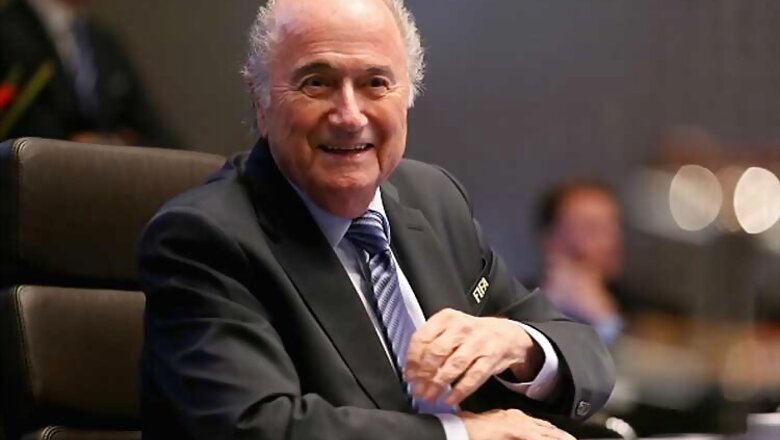
views
Zurich: Sepp Blatter stunned the world of soccer when he resigned as FIFA president on Tuesday, ending a 40-year career at the sport's governing body just four days after being re-elected to a fifth term despite a U.S. corruption investigation.
The 79-year-old, who has held office since 1998, announced the decision at a news conference in Zurich, six days after Swiss police, acting on a request from United States authorities, raided a hotel in the Swiss city and arrested several FIFA officials. Blatter has not been charged.
"While I have a mandate from the membership of FIFA, I do not feel I have a mandate from the entire world of football - the fans, the players, the clubs, the people who live, breathe and love football as much as we all do at FIFA," Blatter told a news conference called at short notice and held after a delay.
"This is why I will call an extraordinary congress to be held as soon as possible, for a new president to be elected to follow me."
Domenico Scala, head of FIFA's independent audit and compliance committee, said there would need to be four months' notice for any new presidential election.
"The decision for the timing of the election of the next president will be up to the executive committee and will take place any time from December until March."
Blatter had been re-elected after his only rival, Jordan's Prince Ali bin Al Hussein, withdrew after gaining 73 votes to Blatter's 133 in the first round of voting.
FIFA called the news conference at their headquarters in a hilly Zurich suburb at only one hour and 20 minutes notice, an almost unprecedented move.
There was a tense atmosphere among FIFA employees and head of media Walter De Gregorio was close to tears as he sat through Blatter's speech.
Blatter, who began his career as a development officer in Ethiopia and then became secretary general from 1981 to 1988, said criticism from outside FIFA had weighed on his decision.
He was also critical of the structure of the executive committee, over which he said he has no control.
"The executive committee includes representatives of confederations over whom we have no control, but for whose actions FIFA is held responsible," he said. "We need deep-rooted structural change."



















Comments
0 comment